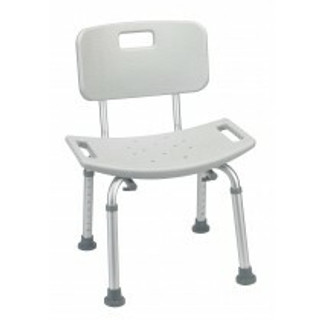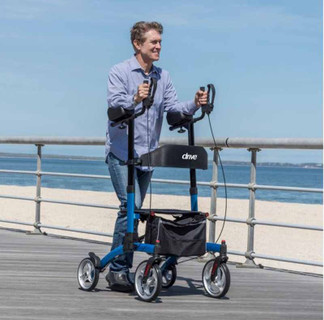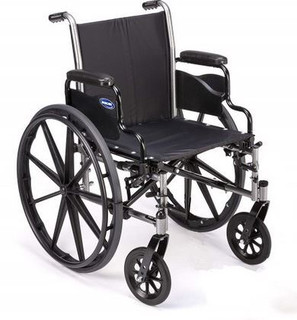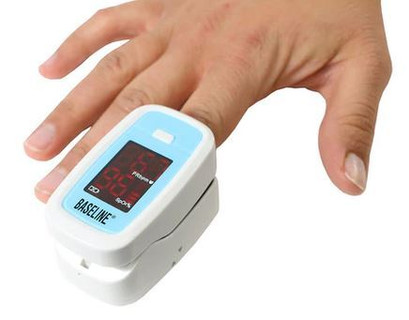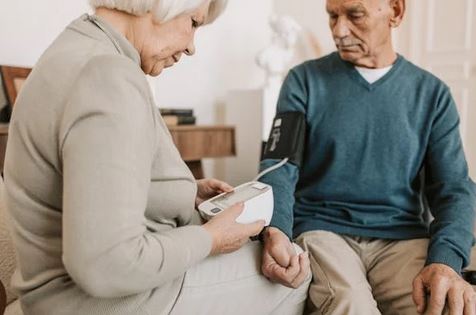Managing Diabetes in Seniors - A Comprehensive Guide
Diabetes is a common condition among seniors, and managing its symptoms requires a careful balance of medication, diet, exercise, and lifestyle adjustments. As we age, the body’s ability to regulate blood sugar can decline, making it crucial to adopt healthy habits that keep glucose levels stable. Proper diabetes management not only improves quality of life but also prevents serious complications such as heart disease, kidney damage, and nerve issues.
1. Following a Healthy, Balanced Diet
A well-balanced diet is one of the most effective ways to manage diabetes symptoms. Seniors should focus on whole, nutrient-dense foods that help regulate blood sugar levels. Whole grains, lean proteins, healthy fats, and plenty of fiber-rich vegetables should be the foundation of every meal. It's important to limit processed foods, refined sugars, and trans fats, as these can cause spikes in blood sugar levels and contribute to other health issues.
Carbohydrates play a key role in blood sugar control. Seniors should opt for complex carbohydrates such as whole wheat bread, brown rice, quinoa, and legumes, which release glucose more slowly and help maintain stable energy levels. Portion control is also essential—eating smaller, more frequent meals throughout the day can prevent drastic blood sugar fluctuations.
2. Engaging in Regular Physical Activity
Exercise is another vital component of diabetes management for seniors. Physical activity helps the body use insulin more effectively and lowers blood sugar levels naturally. However, it’s essential to choose exercises that are safe and suitable for an individual’s mobility level.
Low-impact activities such as walking, swimming, and cycling are excellent options for seniors looking to stay active without putting too much strain on their joints. Strength training exercises, using light weights or resistance bands, can help maintain muscle mass and improve insulin sensitivity. Additionally, flexibility and balance exercises like yoga or Tai Chi can enhance coordination and prevent falls, a common concern among older adults.
3. Monitoring Blood Sugar and Medication Management
Seniors with diabetes should work closely with their healthcare providers to ensure they are taking the correct medications at the right times. Blood sugar monitoring is essential to track trends and adjust treatment plans as needed. Using a glucometer at home can help seniors stay informed about their glucose levels and take action when necessary.
It’s also crucial to recognize the signs of hypoglycemia (low blood sugar), which can be particularly dangerous for older adults. Symptoms such as dizziness, confusion, sweating, and shakiness should never be ignored. Keeping a small snack, such as a piece of fruit or a handful of nuts, readily available can help prevent sudden drops in blood sugar.
4. Staying Hydrated and Prioritizing Sleep
Proper hydration plays a key role in diabetes management. Dehydration can lead to higher blood sugar levels and increase the risk of complications. Seniors should aim to drink plenty of water throughout the day while avoiding sugary drinks and excessive caffeine, which can contribute to dehydration.
Sleep is another important but often overlooked aspect of diabetes care. Poor sleep can affect insulin sensitivity and lead to higher blood sugar levels. Seniors should strive to get at least seven to eight hours of quality sleep per night by maintaining a consistent sleep schedule, reducing screen time before bed, and creating a relaxing bedtime routine.
5. Scheduling Regular Health Check-Ups
Routine medical check-ups are essential for seniors with diabetes. Regular visits to the doctor can help monitor blood sugar levels, adjust medications, and screen for potential complications.
Eye exams should be scheduled annually to detect early signs of diabetic retinopathy, a condition that can lead to vision loss if left untreated. Foot care is also crucial since diabetes can cause nerve damage that reduces sensation in the feet. Seniors should inspect their feet daily for cuts, blisters, or sores and visit a podiatrist if any issues arise. Additionally, regular kidney and heart function tests should be part of diabetes management to prevent serious complications.
6. Managing Stress and Staying Socially Active
Stress can have a significant impact on blood sugar levels, making stress management an essential part of diabetes care. Seniors can benefit from relaxation techniques such as deep breathing exercises, meditation, and gentle stretching. Engaging in hobbies, spending time with loved ones, and participating in social activities can also help reduce stress levels and promote emotional well-being.
Staying socially active is just as important as physical health when managing diabetes. Seniors should seek opportunities to connect with friends, family, or support groups to avoid isolation and maintain a positive outlook on life. Whether through phone calls, video chats, or community events, social engagement can improve both mental and physical health.
Conclusion
Managing diabetes symptoms in seniors requires a well-rounded approach that includes healthy eating, regular exercise, proper hydration, medication adherence, and routine medical check-ups. By taking proactive steps and working closely with healthcare providers, seniors can maintain stable blood sugar levels and enjoy a healthier, more active life. Small changes can make a big difference in improving overall well-being and preventing complications.
SafeWell Medical Supply has everything you or your loved one needs for home medical care. Fast and free shipping is always a priority.
https://safewellmedical.com/patient-care/







